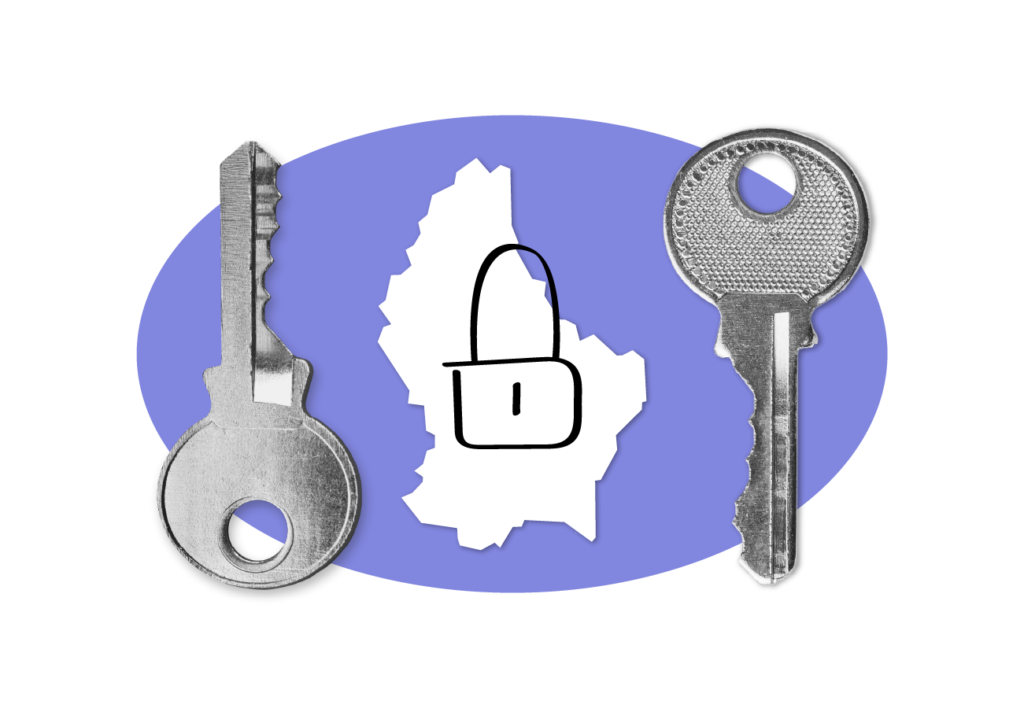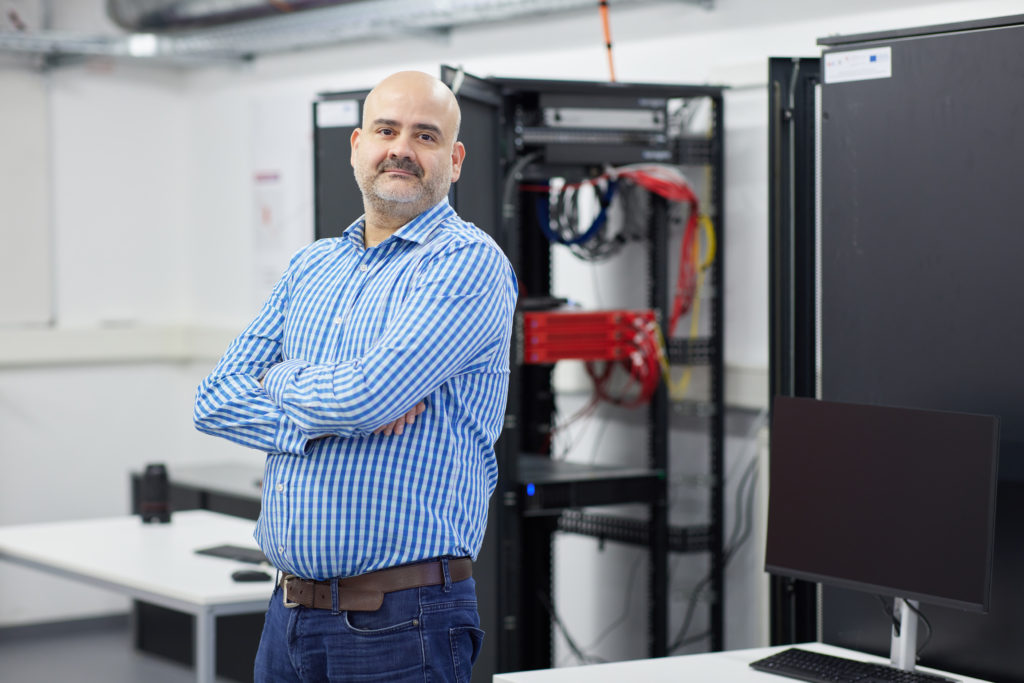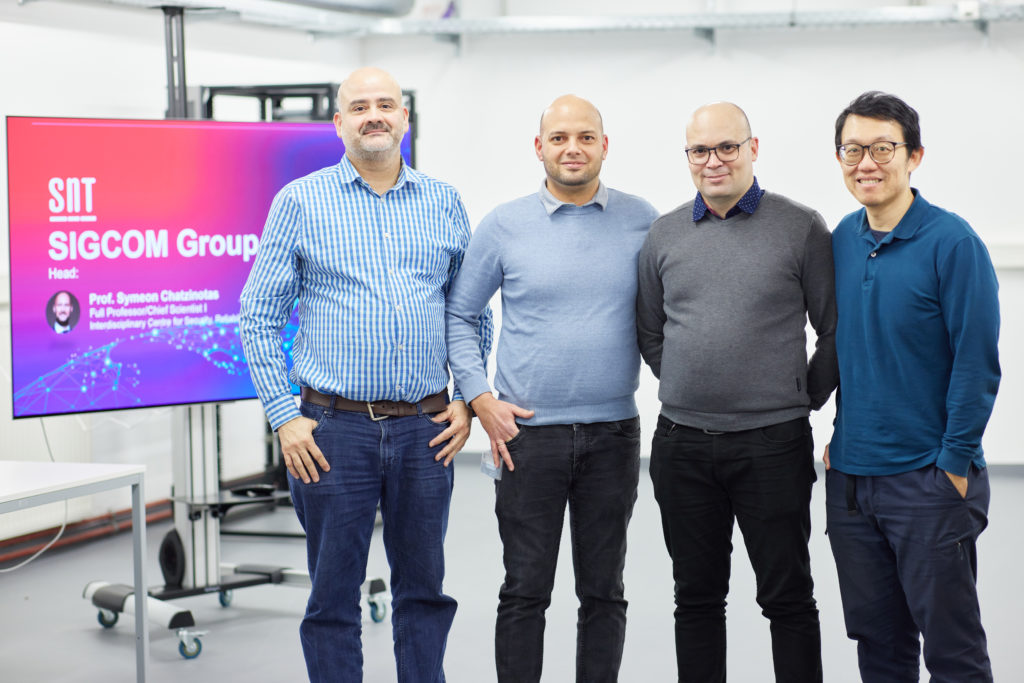Cybersecurity

How would our lives change if we couldn’t rely on secure online communications? Even though it feels impossible, it is a tangible risk with the advent of quantum computing. As the underlying technology quickly gains commercial pace, the demise of current encryption techniques and the risk of extremely powerful cyberattacks looms closer. So close, in fact, that intelligence agencies have allegedly been intercepting and storing encrypted data to decrypt in the very near future.
The only way to reduce the risk is to build up our defences; namely, advance on quantum key distribution (QKD), and, later, quantum internet and quantum communication networks. QKD is a cryptographic protocol that allows for the exchange of secret keys based on quantum mechanics. Due to the physical properties of quantum systems, both the recipient and the sender of data would know if a key was intercepted by a third party – as interacting with a quantum system alters the stored data.
To build on this game-changing cryptographic protocol, the University of Luxembourg’s Interdisciplinary Centre for Security, Reliability and Trust (SnT) launched LUQCIA in 2022. LUQCIA is a five-year project funded by the European Union’s Recovery and Resilience Facility (FRR) – NextGenerationEU to build a national testbed for quantum communication infrastructure (QCI) and enable advanced collaborative research in this domain. The project aims to make Luxembourg competitive in this field at a European and international level, and foster an active research ecosystem by pooling resources from public and private stakeholders. And, while its immediate target is QKD applications, which are more likely to have an impact in the short term, the testbed infrastructure is being designed to also support nascent areas, such as space-based QKD and quantum information networks.
"The long-term vision for LUQCIA is to empower technological advancements towards the quantum internet.”
Prof. Symeon Chatzinotas, SnT Tweet
“EU-based innovation and talent could not be more important when it comes to the development of quantum technology,” said Prof. Symeon Chatzinotas, who leads the project at SnT, “as the end use cases will predominantly be for information security purposes.”
The preliminary design of the testbed foresees two nodes in the grounds of the University of Luxembourg (Kirchberg and Belval), which can be federated with similar national initiatives by private companies (e.g., SES and ESA’s Eagle-1 initiative) to create more complicated topologies and pave the way to QKD through satellite systems. In fact, satellite-based quantum communications would allow for quantum keys to be distributed over much larger distances than optical fibre; therefore, further developments of this technology constitute a very interesting business case for the NewSpace sector.
LUQCIA will implement two types of connections between the nodes, first using leased optical fibre, and, in parallel, free space optics. Once the initial setup is concluded, LUQCIA will constitute an enabler for innovative research across all layers of quantum communication networks, namely software, cryptography, networking, signal processing and optics.

“The LUQCIA infrastructure aims to enable academic and industry stakeholders to conduct their research on state-of-the-art quantum communication infrastructure, integrating fibre and free space optics. The long-term vision for LUQCIA is to empower technological advancements towards the quantum internet, which combines quantum computing and quantum communications,” explained Prof. Chatzinotas.
The infrastructure will be accessible to other public and private stakeholders as a lab facility or in the form of collaborative research with SnT. In terms of economic impact, the project aims to create a pole of attraction of private stakeholders targeting use cases in FinTech, cybersecurity and space. The first milestone of the lab was approved in late November 2022, during a visit from the funding bodies – the Ministry of Communications and Media, the Ministry of Finance, and the Luxembourg Space Agency. From a societal point of view, the practical deployment of quantum communications with a long-term horizon aims to guarantee the data security of Luxembourg’s communication networks, and potentially make the vision of quantum internet accessible to all citizens.
“The LUQCIA infrastructure aims to enable academic and industry stakeholders to conduct their research on state-of-the-art quantum communication infrastructure.”
Prof. Symeon Chatzinotas, SnT Tweet

Expanding the accessibility of QKD is an intended future focus of the LUQCIA initiative, with the planned launch of a technical training programme. “We want to give local ICT professionals the opportunity to get ready for a quantum future and bring their skills back to organisations around the country, or even the EU,” said Prof. Chatzinotas. The courses could start as early as September 2023, and would give students direct access to learn from the leaders in quantum technology in Luxembourg.
